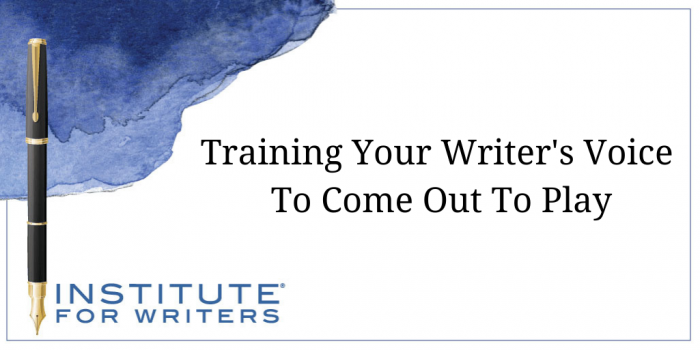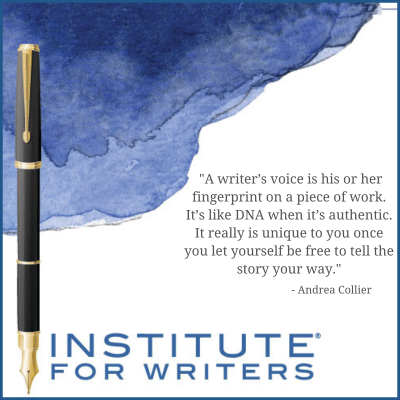1000 N. West Street #1200, Wilmington, DE 19801
© 2024 Direct Learning Systems, Inc. All rights reserved.

When I first started writing in earnest I would mimic the authors that I admired. I studied how they put words on the page. I’d try to guess what the work told me about how that writer saw the world. I wanted to be the next Toni Morrison. And when I started reading Anne Rice, I wanted to tell a story like her.
 You are Your Voice
You are Your VoiceA writer’s voice is his or her fingerprint on a piece of work. It’s like DNA when it’s authentic. It really is unique to you once you let yourself be free to tell the story your way. The story, along with how you tell it, will become the foundation of your voice. But it doesn’t often show up organically. We must excavate the things that are like the hidden treasures of story and explore the ways we want to tell it.
To paraphrase Anne Lamott, the first step is to get a bad first draft. I encourage writers to just write the story, bravely and boldly. Don’t worry about the “perfect” version. Don’t spend any time listening to the critic in your head that says, “you don’t know how to do this.” Put your pedal to the metal and write. Beginning, middle, and end. Will you end up with a story that honors your voice with that draft? No, most likely you will end up with a tangled yarn that must be unknotted, slowly. Put another way, think of this draft as a block of raw clay. It’s here but it doesn’t know what it wants to be yet. Most of the elements are there but they don’t speak to how you tell a story. The hard work of voice starts here. Sometimes we need to be willing to tear a story down to the studs and build it back up in our own voices.

Once I have this bad draft, I do a few things. I read my story quietly. Then I read it out loud. After I let that marinate for a day or two, I come back and rewrite the story, layering in my voice. It gets personal and it gets hard. I make some difficult decisions about what the story is about, at its essence. Then I make sure each word I select, and each paragraph I string together is illuminating that decision and giving me the tools to use my voice.
Back in the day, when I was in journalism school, one of the best pieces of advice I got was from a professor who saw me struggling with this illusive thing called writer’s voice. She said, “just talk into the typewriter.” Yes, it was that long ago. But it still works with your computer. I literally take my rough draft and tell the story as if I were relating it over coffee with a friend. At that point, the story sounds like me telling you something in my natural and authentic voice and through the lens and filter of how I see the world.
I once had an editor who was very formal in the way she talked. Her language was very precise. There was no variation in the rhythm of her sentences. If it had been a journalistic story that was about telling story through the publication’s collective voice, I would have caved. But this was my memoir. So, I did a little push back, especially when she used words like unvarnished, which I would never use as a replacement for “to tell the truth.” It didn’t add to the story or make it clearer. I could have let it go, but I am a stickler when it comes to my writer’s voice. The best compliment any person who reads an essay of mine can give me says he or she feels connected to my voice.
 You Get to Choose
You Get to ChooseNote that your writer’s voice, does not have to be identical to your speaking voice. In fact, as an artist and writer, you get to make the choice. Your writer’s voice should be true to the story you want to tell, and the characters who are going to tell it. If it is a personal essay, then you have a lot of flexibility in making it close to the way you share information.
Andrea King Collier is an award-winning journalist and author. She writes for leading print, online and broadcast outlets. She is the author of The Black Woman’s Guide to Black Men’s Health, and Still With Me… A Daughter’s Journey of Love and Loss. She is also an in-demand writing teacher and coach.
1000 N. West Street #1200, Wilmington, DE 19801
© 2024 Direct Learning Systems, Inc. All rights reserved.
1000 N. West Street #1200, Wilmington, DE 19801
© 2024 Direct Learning Systems, Inc. All rights reserved.
1000 N. West Street #1200, Wilmington, DE 19801
© 2024 Direct Learning Systems, Inc. All rights reserved.
2 Comments